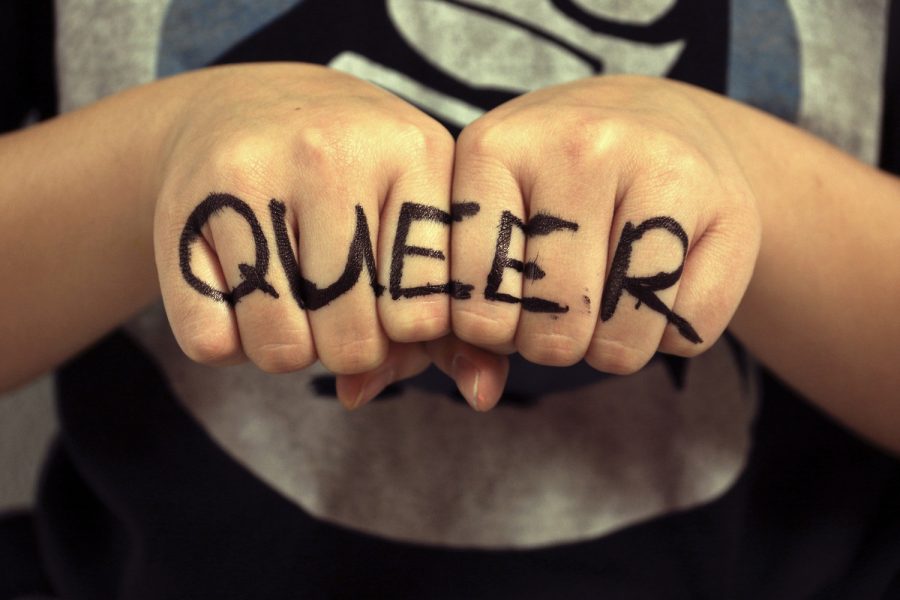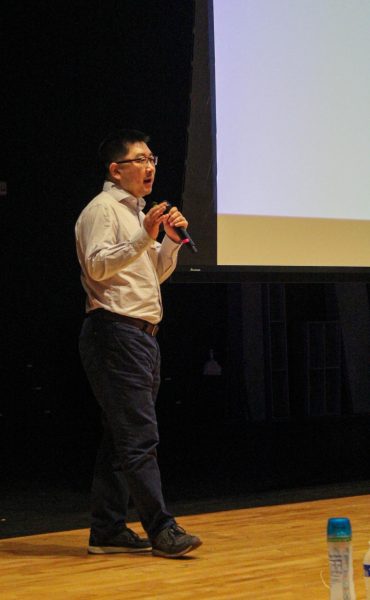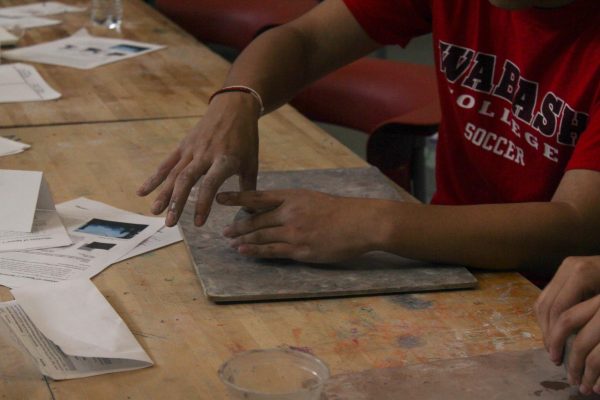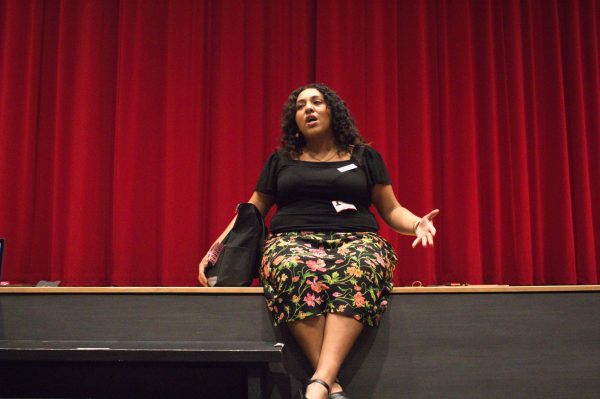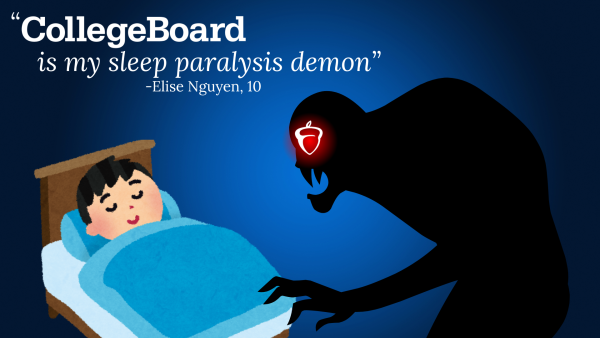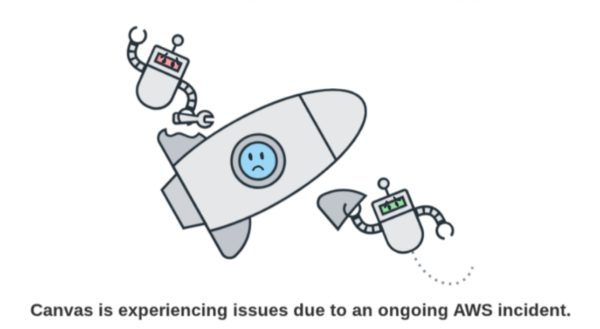LGBT+ Slurs
“If the country allows you to leave, all the better for the country; but, if you take my son with you, I will follow you wherever you go and shoot you.”
John Sholto Douglas, 9th Marquess of Queensberry, Scotland, was the first man to ever use the word queer in a derogatory context. He wrote the letter “For Oscar Wilde, Posing as Somdomite” on April 1, 1894. The letter led to the imprisonment of Oscar Wilde for homosexuality. This use of the word as a slur stuck, and it essentially ended Wilde’s life.
“My friends have used transphobic slurs in the past,” senior Aiden Vazquez, a transgender student, said. “Honestly, it hurts, especially when it is coming from someone close to you. Offensive words don’t hurt as much as they used to, but it still sucks when people aren’t careful with what they say.”
The use of LGBT+ descriptors in a negative context have been regularly observed by Vazquez. These small, everyday attacks are called micro-aggressions, and they have an impact. Junior Zoe Pham, media officer for the Gay-Straight Alliance, explained the motive behind these transgressions.
“Although micro-aggressions aren’t outright acts of hate and obviously don’t represent the school, their popularity speaks volumes about our society,” Pham said. “They represent ignorance. Offhand comments and jabs used to provoke, demean or make the abuser cooler in his or her friends’ eyes are a big problem in any context.”
Members of the LGBT+ community have worked to overcome the way their differences are emphasized. The mission, according to Pham, is to teach the public that people should be seen as more than their sexual and gender identities. Vazquez explained that a question that would not be appropriate to ask a non-LGBT+ person is not appropriate to ask a member of the LGBT+ community because people are people.
“One friend in particular talked about transgender people’s bodies once,” Vazquez said. “I had to shut her down. It’s not okay to ask a transgender person about their bodies. It’s not okay to ask anyone else about that. A lot of trans people have body dysphoria, so commenting on their appearance can just make them more uncomfortable with their bodies.”
Since this occurrence, Vazquez has been educating his friends and classmates about the line between appropriate and inappropriate questions. Asking what pronouns a person uses, such as he/him or she/her, is completely appropriate. Asking whether or not a person has undergone sex reassignment surgery, however, is highly personal and can be viewed as offensive.
“Just don’t be rude,” Vazquez said. “I always tell people if something they say is offensive. More importantly, I tell them why it’s offensive. I don’t stand for homophobia, and I’m not afraid of shutting people down when they’re being offensive. The goal is to stop them from saying what they’re saying in that moment, and then we can discuss the issues.”
The process of informing people about LGBT+ issues helps reduce the usage of slurs and teaches LGBT+ students how to address homophobia. These minority students have also learned not to pay attention to the slants against them. Pham shared her recent experiences.
“When I was setting up the booth for Gay-Straight Alliance at Cardinal Camp, I felt uncomfortable being associated with an LGBT+ cause,” Pham said. “Some kids pretended to be interested in the club as a joke. Later, as I put up GSA posters in the hallways, I heard people talking about me behind my back. That’s why GSA is so important; it provides a safe, informative space.”
GSA works to eliminate the stigma surrounding members of the LGBT+ community by showing people what and why the things they say are offensive. People like Pham and Vazquez are also making an attempt to take back the words that are used against them.
“I believe in reclaiming slurs to empower those affected and to negate the offensive connotations,” Pham said. “If we start using these words positively, we’ll change the way they’re perceived. This being said, slurs used offensively are unnecessary and against the diversity celebrated at our school. People should be aware of what they say and all the weight language brings with it.”
Queer nation launched a slogan under the Human Rights Campaign on March 20, 1990 in an attempt to reclaim the word queer during the AIDS crisis. Members of the group argued that the word queer was more inclusive than the word gay and, most importantly, that stealing the word from homophobes reclaimed not only the slur, but also their power.
“We’re here. We’re queer. Get used to it.”
Your donation will support the student journalists of Bellaire High School. Your contribution will allow us to purchase equipment and cover our annual website hosting costs.


